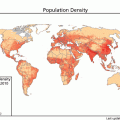Classification: ICD-9 084; ICD-10 B50
Syndromes and synonyms: Falciparum malaria, malaria tropica, tropical fever, blackwater fever, paludism, marsh fever.
Agent: Plasmodium falciparum, an intracellular protozoan parasite in the Phylum Apicomplexa. Among the malaria parasites, P. falciparum causes the vast majority of mortality.
Reservoir: Humans.
Vector: Mosquito (Anopheles spp.), mainly bites between dusk and dawn (see Anopheles map).
Transmission: By mosquito bite (Anopheles spp.). Transmission has been described in needle sharing IVDUs and through blood transfusion.
Cycle: There is an asexual phase in humans and a sexual phase in the vector mosquito. The mosquito injects sporozoites that invade human liver cells where they reproduce and develop to merozoites, which, after release, infect erythrocytes. The erythrocytic stages multiply around 10-fold every 48-hours. Erythrocytes can release gametocytes which infect mosquitoes during a blood meal. In the mosquito, gametocytes develop into sporozoites.
Incubation period: 7 to 15 days, but can be longer.
Clinical findings
Stay updated, free articles. Join our Telegram channel

Full access? Get Clinical Tree




